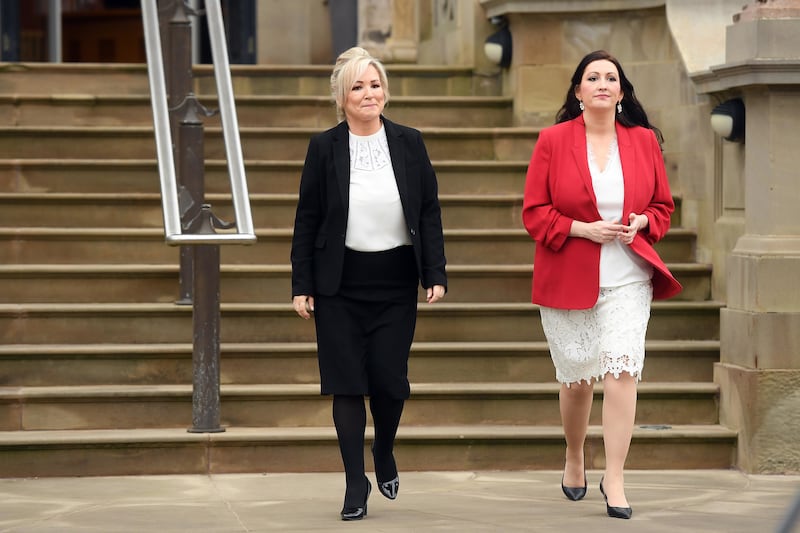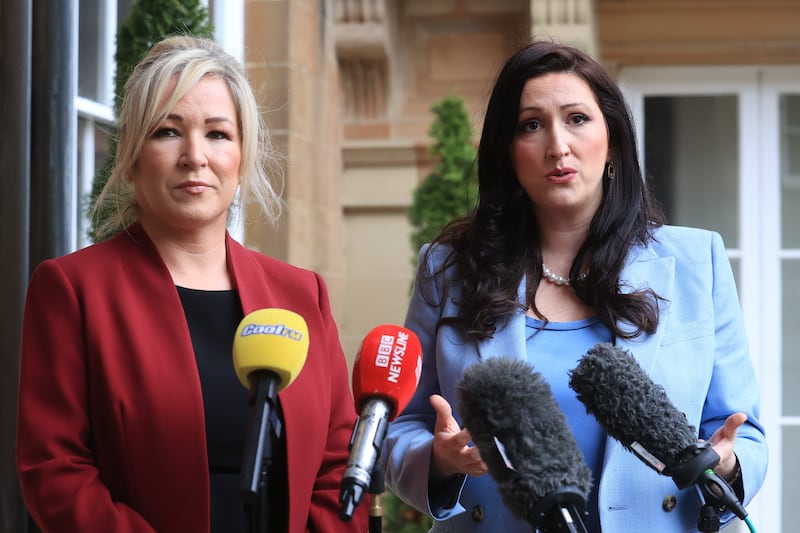A 60 PER CENT-PLUS salary increase for MLAs' best paid staff has been described as "absolutely astounding" by a former member of the panel who was previously tasked with determining the costs Stormont representatives could claim back from the public purse.
The best paid party workers, potentially including the sons and daughters of some MLAs, will see their salaries increase by up to £17,000 overnight after the Assembly Commission authorised new spending guidelines.
The lowest grade MLAs' office workers will see their salaries increase by more than 30 per cent to £23,500, while their middle grade counterparts will enjoy an annual pay rise of almost 50 per cent to £29,400.
Top grade party workers, whose salary was previously capped at £22,750, will now be paid up to £37,180.
The commission is made up of representatives from each of Stormont's five main parties and is chaired by Sinn Féin's Alex Maskey.
The changes, which override the staff spending limits set in 2016 by the Independent Financial Review Panel, could cost the taxpayer an additional£4.25 million a year as they bring party workers' pay and conditions in line with Northern Ireland Assembly staff.
Read More: New rules mean ex-MLAs will be allowed to set their former colleagues' salaries
The pay increases will be backdated to April 1 and will not require the approval of the full assembly.
The new measures will also see a 60 per cent increase to £80,000 in the amount each MLA is permitted to claim for employing staff, meaning any representative could potentially have at least two workers earning the top salary.
The commission has enhanced the workers' conditions, entitling them six months sickness on full pay, in line with public sector workers. MLAs have also been given the go-ahead to increase spending on their offices by more than 40 per cent to £7,000.
Mr Maskey said the amended guidelines would "enable MLAs to carry out their legislative and constituency responsibilities in an appropriate, efficient and flexible way".
"Both the Assembly Commission and MLAs strongly believe that the staff MLAs employ should not be treated less favourably than assembly staff, especially in light of the important role they play in providing services to constituents," he said.
“I want also to make it very clear that the changes to the 2016 determination in no way diminish the scrutiny and oversight that the Assembly Commission applies to all allowances that are available to MLAs to pay their staff and run their constituency offices."
But Alan McQuillan, who sat on the three-member panel that devised the 2016 spending limits, said the changes were "at best bad PR and at worst appalling".
He said the panel had made its 2016 determination after comparing party workers with a "basket of jobs and responsibilities" for those employed in similar roles.
"Under the new guidelines some of these staff are now being paid more than teachers and nurses," he said.
" I know many of them work very hard and I respect that, but non of them are near that level of responsibility, training and qualifications."
Mr McQuillan said he also had concerns about increased limits for MLAs employing "hugely expensive" agency staff.
"The massive pay rise for staff that the commission has signed off, against a backdrop of rising unemployment and economic meltdown, is absolutely astounding," he said. "It's at best bad and at worst appalling."








